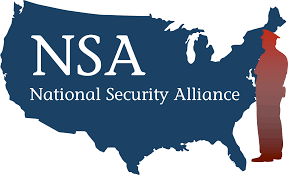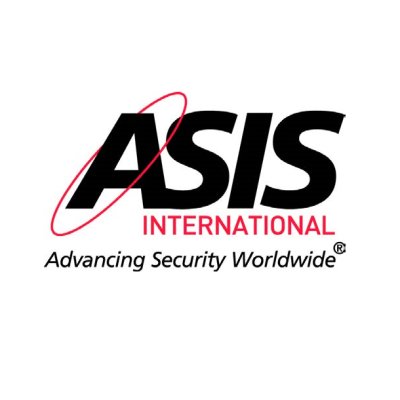
The Role of Security Guards in Conflict Management
The Importance of Conflict Resolution Training for Security Guards
Randi Sherman
5-Minute Read
Conflict resolution and management is a critical skill for security guards. A guard with conflict resolution training can manage tense situations more effectively, minimize risk, and potentially avoid legal repercussions while keeping their employer’s premises and people safe—and that’s what being a guard is all about.
With the proper training, guards can manage volatile interactions more easily, using their negotiation skills to understand people’s motivations within the conflict and hopefully find peaceful solutions for all involved.
Today, we’ll outline the importance of conflict resolution training for security guards and its role in their day-to-day duties.
The Role of Security Guards in Conflict Management
Security guards are often the first to respond to potentially volatile situations. They could be controlling access at a residential property, work site, or at an event, and if so, they will almost always be the first person the public interacts with.
While every context differs, a calm demeanor is essential as it presents a positive first impression when approaching a guarded area. Guards may face high-pressure situations or tactics for any number of reasons. Conflict resolution skills help guards resolve disputes over trespassing, aggressive behavior, or when crowd control is required.
In any of the above scenarios, staying calm and exuding professionalism helps to keep the peace. When perpetrators are addressed calmly and respectfully, most will comply. Obviously, this is the ideal outcome; nobody wants things to get out of hand. But even the most naturally self-assured security guard has buttons that can be pushed. Conflict resolution training gives them the skills and strategies they need to maintain objectivity and respond appropriately, thus avoiding escalation.
Why Conflict Resolution Training Is Essential
Here are a few reasons why conflict resolution training is vital for guards.
· De-escalation vs. escalation. Conflict resolution training focuses on de-escalation. When situations are not de-escalated, there is a massive risk that they will advance to the next level, resulting in violence or injury.
· Reduces liability. Good conflict resolution skills help to minimize the risk of a guard using excessive force, thus avoiding legal repercussions and injury.
· Keeps premises and people safer. A guard who can effectively resolve conflicts helps people feel more relaxed and secure when on the premises.
· Enhanced communication skills. Conflict resolution training focuses on interacting with people in tense situations, enhancing the guard’s essential skill set.
Key Components of Conflict Resolution Training
Conflict resolution training focuses on verbal and non-verbal communication, helping guards better understand high-pressure situations. Some of the skills this training reinforces include:
· Active Listening. Active listening helps guards understand the perspectives of all involved in the conflict. By putting themselves in another’s shoes, they may be better able to empathize, ensuring the individual is heard and acknowledged. Sometimes, that’s all it takes!
· Non-verbal Communication. Being able to read a person’s tone of voice, body language, and gestures helps immensely in managing tension. Knowing how to respond to non-verbal cues aids in de-escalation.
· Emotional Intelligence. It’s easy for tempers to flare when things get tense. Training helps guards recognize these emotions and keep them in check to stay calm during the intervention.
· Crisis Communication Techniques. Using clear, calm, and assertive language is one of many conflict resolution strategies. A steady demeanor helps to instill trust in the guard’s ability to handle the situation and may help to resolve it peacefully.
· Problem-Solving. Guards must strive to find peaceful solutions or compromises to resolve conflicts. Training helps them keep their cool as they work their way toward a resolution.
Hands-on Learning and Practical Scenarios
A significant component of conflict resolution training is hands-on, putting the theory into practice in real-world scenarios. This aspect of the training is crucial as it helps guards understand how they respond in certain situations so they can adapt.
Practical training includes role-playing exercises where guards can practice responding to common conflicts. Examples include verbal altercations, resisting requests to vacate premises, etc.
Scenario-based training involves putting guards in real-life situations, focusing on how they assess and respond to what’s being said and done.
After each role-playing or scenario-based module, the guard will get the opportunity to discuss with the instructor and others in the glass what went well and identify areas for improvement.
Benefits of Conflict Resolution Training
Conflict resolution training immediately benefits the guard, their employer, and the people they protect. The more experienced they become, the more valuable they are as employees, potentially increasing their earning potential and enhancing their job security.
· Confidence. Well-trained guards are more confident as they feel better equipped to handle all kinds of challenging situations.
· Trust. Guards who are good problem-solvers are seen as respectful, responsible, and trustworthy by their employers and the people they serve. This attribute reflects well on the employer, improving public relations and enhancing the company’s public image.
· Career benefits. Guards who master conflict resolution are more likely to be trusted and promoted, leading to a satisfying long-term career path.
· Stronger teams. An emphasis on training lets guards know they are valued, encouraging teams to work together to handle security challenges.
Final Thoughts
While conflict resolution training may not be required for security guards to get a job, it’s a skill that enhances their value as employees and helps them excel at their jobs. For security companies, it’s a way to invest in your people—and strengthen your company’s profile. When your guards are known for mitigating risk and instilling trust in their colleagues and the people they protect, it’s a win-win situation for all concerned.
Even experienced guards with good natural instincts will benefit from conflict resolution training, and it’s one of the best ways to differentiate yourself as an employer and a service provider.
Prioritize conflict resolution training as a core skill for your guards: explore Defencify’s self-paced online conflict resolution courses and get started as early as today.
For seasoned guards who require continued education credit, consider taking Crisis Intervention or Verbal Judo to brush up on the latest trends.






